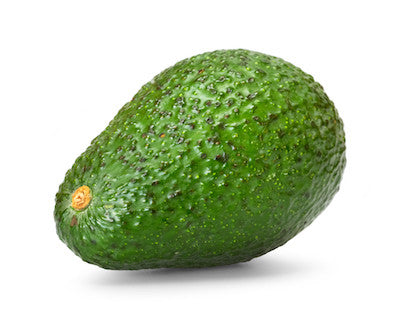
Avocado: calories, properties and nutritional values
Share
Does avocado make you fat? How many calories does an avocado have ? What are the nutritional values and properties of this fruit? To answer all these questions, you need to know a little more about the plant and this fruit with a thousand uses. The avocado plant is now widespread in some areas of the Mediterranean basin, including Calabria. The part of the avocado that is used is represented by the fruit and the oil from the pulp of the dried fruit. The avocado is considered one of the healthiest and most energetic fruits in nature. It is above all a source of mineral salts, such as potassium, omega 3 fatty acids and vitamins . But let's find out everything about the calories, nutritional values and benefits of avocado .

Avocado: nutritional values
Among the active ingredients of avocado are: fatty oil, omega 3 linolenic fatty acid (10%~30%), renowned for their anti-inflammatory properties ; antioxidants, proteins, carbohydrates, sugar, amino acids, vitamin A, vitamin D, vitamin E, potassium. The vitamins present in avocado help our body protect itself from aging, strengthen eyesight and immune defenses. Avocado is a precious source of mineral salts and like all plant-based foods, it does not contain cholesterol. Avocado is also a source of carotenoids , whose absorption by our body is facilitated by the lipid content of this fruit.
Avocado: How many calories does it have?
Avocado is among the most energetic fruits , in fact 100 grams of avocado provide our body with 231 calories, which mainly come from the lipid content of this fruit.
Avocado: beneficial properties and uses
Avocado is useful in keeping blood sugar levels under control. A recent study conducted by researchers at the University of Pennsylvania, has examined the contribution of avocado to lower cholesterol and reduce the risk of cardiovascular disease. The study has shown that the intake of monounsaturated fatty acids released by avocado can drastically reduce LDL cholesterol, which is commonly called "bad" cholesterol as opposed to HDL, the "good" cholesterol. Vitamin A and vitamin E present in avocado play the role of natural antioxidants and thus protect our body, both from aging and degenerative diseases, helping it to protect itself from the action of free radicals. The amount of potassium present in an avocado is comparable to that provided by the consumption of three bananas. The intake of potassium is useful for our body to regulate blood pressure and to reintegrate mineral salts lost due to sweating, especially during the summer season and during training. The content of omega 3, vitamins and mineral salts of avocado is also beneficial for our skin and hair, with an action that can occur both internally, with the consumption of avocado as a food, and externally, with the use of avocado pulp to prepare masks and compresses.
Avocado: Learn more
If you want to know more about avocado, the plant and its cultivation, recipes and how to buy our organic avocados produced in Calabria read here:
